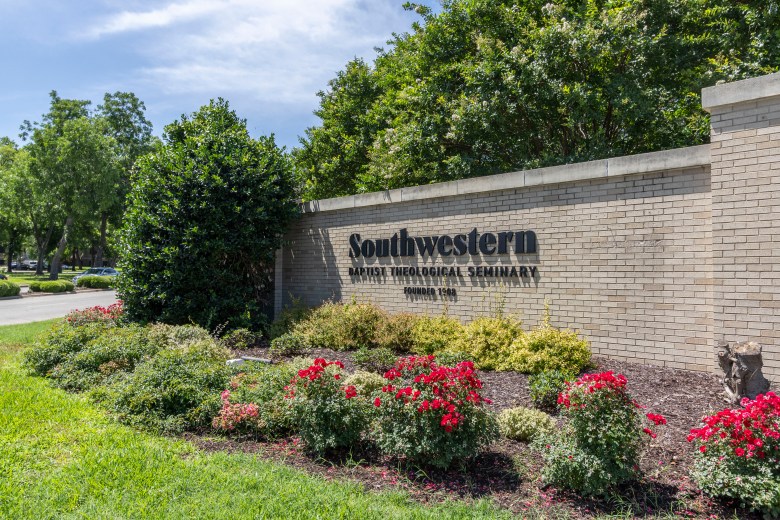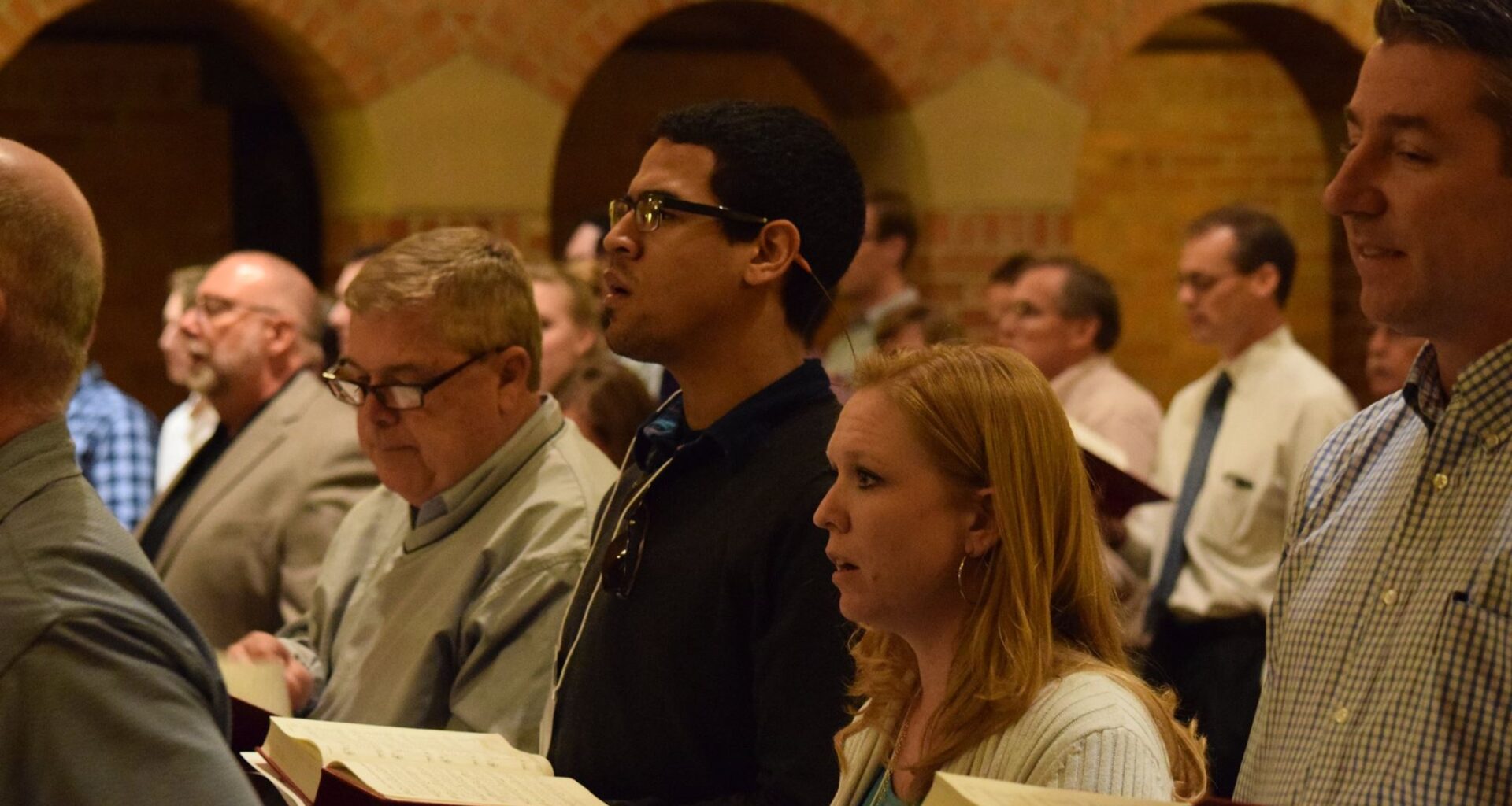Attending college can be pricey — even for future faith leaders.
So Fort Worth’s religious higher education institutions are paving ways to make religious learning more financially accessible to students through scholarships, donors and denomination-specific perks.
“We do not want the way that people are responding to their call being limited by the debt that they bring along with them,” said Rev. Dr. Stephen Cady, president of TCU’s Brite Divinity School.
Texas Christian University officials announced in early August a free tuition program to support Pell Grant-eligible undergraduate students beginning next fall. The move comes as TCU is experiencing rapid growth, with enrollment rising by 29% within the last decade. Tuition at the school is about $82,310 for the 2025-26 academic year.
Meanwhile, the average annual cost to pursue a Master of Divinity degree at Brite Divinity School is about $29,220, according to the Association of Theological Schools 2022-2023 data. However, the school has covered tuition and fees for all master’s students since the summer 2023 semester.
The Next Brite Scholarship is a multiyear, experimental initiative that ends after the spring 2027 semester, according to its website.
Cady said the aim is to alleviate the financial burden on students, especially those not entering lucrative careers.
Clergy’s annual mean wage in Texas as of May 2024 was $61,230, which is below the national average at $67,160, according to the U.S. Bureau of Labor Statistics.
The effort has led to an increase in enrollment, though it’s hard to separate its impact from the post-pandemic bounce-back, Cady said. The divinity school had 170 students enrolled in the 2024-25 school year, which is slightly higher than what it was before the pandemic, according to annual data from the Association of Theological Schools.
The school also covers full tuition and offers a stipend for students in its Doctor of Philosophy program, Cady added.
The total cost for Brite Divinity School’s Doctor of Ministry program is $13,200, which is split into six equal payments of $2,200. Students who don’t complete their degree within the three years pay a continuing fee of $375 until the program is completed. Doctor of Ministry students aren’t eligible to receive Brite Divinity School tuition aid and grants, according to its website.
Looking ahead, the focus remains on supporting master’s students, with plans to continue fundraising to maintain the scholarship, Cady said.
In today’s climate, churches are not able to financially support full-time pastors, which often leads them to take on two jobs, Cady said.
“We are trying to remove those barriers to have good people enter ministry and to remove barriers from people answering their call,” he added.
Fort Worth seminary offers resources for Southern Baptists
Fort Worth is also home to Southwestern Baptist Theological Seminary, which was once the largest in the nation and one of six schools operated by the Southern Baptist Convention.
Comparing Southwestern to TCU and Brite is “a bit of apples and oranges on some levels and similar in others,” said Chandler Snyder, the seminary’s vice president for institutional relations.
 The campus sign welcomes visitors with bright foliage June 9, 2025, at Southwestern Baptist Theological Seminary in Fort Worth. (Mary Abby Goss | Fort Worth Report)
The campus sign welcomes visitors with bright foliage June 9, 2025, at Southwestern Baptist Theological Seminary in Fort Worth. (Mary Abby Goss | Fort Worth Report)
Seminaries are typically affiliated with a particular religious denomination and offer programs to train students in such, according to Trinity International University. Divinity schools offer training across several fields of study within a university setting.
Southwestern does not accept any federal student aid, unlike Brite Divinity.
Instead the seminary works with donors to offer other forms of financial aid, which 98% of students qualify for, Snyder said.
For example, the school’s Mercy Scholarship is a one-time award designed to help selected first-semester students get a head start on their degree at Southwestern seminary by covering tuition, fees and books. It also offers a $500 stipend each month for 12 months.
Eligible recipients must be male, new to the seminary and attend a Southern Baptist church. Other requirements include plans to pursue a Master of Divinity, attend as a full-time student and take classes in-person.
Snyder said the anonymous donor understands the sacrifice it takes to prepare for ministry work.
“He wants to aid those students in graduating, not only debt-free, but in such a way that they’re able to thrive and step into ministry immediately, doing evangelism and pastoring churches,” Snyder said.
On-campus courses for master’s and seminary certificates cost $342 per credit hour each semester for students affiliated with a church in the Southern Baptist Convention. Students not affiliated with a Southern Baptist church would pay $684 per credit hour each semester. Students paid about $11,220 in tuition and fees for the school’s Master of Divinity program during the 2024-25 academic year, according to the Association of Theological Schools data.
The seminary’s Doctor of Ministry three-year program costs $13,174 for students affiliated with a church in the Southern Baptist Convention. The general standard rate is $17,908, according to the school’s 2025-26 rates.
Students needing more time to complete the program pay an extension fee of $1,500 per fall and spring semester beginning in the fourth year.
While seminaries across the country have experienced drops in enrollment in the past two decades, numbers are increasing, according to data collected by the Association of Theological Schools.
Southwestern Baptist Theological Seminary had 2,278 students enrolled in 2024-25, an increase from the 2,237 students enrolled the year before.
“It’s a unique calling, and these donors that come alongside, they understand that and want to help underwrite it, but they understand also that the work of caring for souls is consequential,” Snyder said.”
Students for Brite and Southwestern seminary begin classes Aug. 18.
Marissa Greene is a Report for America corps member, covering faith for the Fort Worth Report. You can contact her at marissa.greene@fortworthreport.org.
At the Fort Worth Report, news decisions are made independently of our board members and financial supporters. Read more about our editorial independence policy here.
Related
Fort Worth Report is certified by the Journalism Trust Initiative for adhering to standards for ethical journalism.
Republish This Story
Republishing is free for noncommercial entities. Commercial entities are prohibited without a licensing agreement. Contact us for details.
